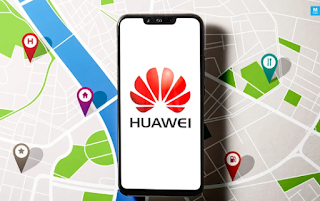Despite US sanctions, Huawei's sales increased by nearly 31% in China.
After announcing HarmonyOS to no longer depend on Android, the Chinese tech giant is working on a mapping software. One more step towards the emancipation of Huawei towards Google and its services.
Despite peaceful relations, the technological and commercial war between the United States and China does not stop. Latest announcement: Huawei is developing its own mapping service.
According to the China Daily, this "Huawei Maps" should compete with Google Maps by October 2019. The Chinese service called "Map Kit" would be primarily for developers who want to integrate a map to their applications.
150 "countries and regions" and more than 40 languages
Asked by the Chinese newspaper, a Huawei executive said Map Kit would include a similar service to Street View and real-time traffic simulation. Huawei is also touting its Augmented Reality mapping system - without further details at this time. One can imagine that the company aims to compete with Google Maps Live View even if such a feat could take years. Map Kit should be available in more than 150 "countries and regions" and more than 40 languages.
Some clues in the report allow to guess where Huawei will obtain its cartographic data (since unlike Google and Apple, the Chinese company does not seem to create its own map of the world). The China Daily reports that Map Kit "will be connected to local mapping services." According to one source, the Chinese tech giant would join Yandex, a Russian company specializing in online mapping. According to another source, Chinese telecom base stations could offer additional information to satellite positioning data.
But to weigh against Google's domination of the mapping market, Huawei will have to invest heavily. The American search engine bought Waze for $ 996 million in 2013 and invested in a fleet of vehicles that have traveled the streets of the world to transcribe them on maps.
A serious competitor for Google Maps?
In front of Google, Apple does not weigh much in this sector. Since 2012, Tim Cook's company has been offering its own mapping application based on TomTom's data, OpenStreetMap, but has had a very difficult start. Apple has since decided to map the planet itself using extremely sophisticated vans, but such a feat takes time. The results of the California firm are just beginning to bear fruit but only in some US cities.
For its part, Nokia has offered Here Maps a number of years before selling it to a consortium of German car companies for just over $ 3 billion in 2015. The Swedish service is now used by Microsoft's Bing Maps. It remains to be seen whether Huawei will become a competitor at the height of Google's cartographic hegemony, which seems unlikely today.
